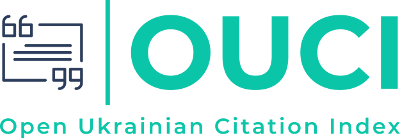Estimation of the numerical efficiency of global optimization methods
DOI:
https://doi.org/10.34185/1562-9945-3-134-2021-04Abstract
Currently, test problems are used to test the effectiveness of new global optimization methods. In this article, we analyze test global optimization problems to test the numerical efficiency of methods for their solution. At present, about 200 test problems of unconditional optimization and more than 1000 problems of conditional optimization have been developed. We can find these test problems on the Internet. However, most of these test problems are not informative for testing the effectiveness of global optimization methods. The solution of test problems of conditional optimization, as a rule, has trivial solutions. This allows the parameters of the algorithms to be tuned before these solutions are obtained. In test problems of conditional optimization, the accuracy of the fulfillment of constraints is important. Often, small errors in the constraints lead to a significant change in the value of an objective function.
Construction of a new package of test problems to test the numerical efficiency of global optimization methods and compare the exact quadratic regularization method with existing methods.
The author suggests limiting oneself to test problems of unconstrained optimization with unknown solutions. A package of test problems of unconstrained optimization is pro-posed, which includes known test problems with unknown solutions and modifications of some test problems proposed by the author. We also propose to include in this package J. Nie polynomial functions with unknown solutions. This package of test problems will simplify the verification of the numerical effectiveness of methods. The more effective methods will be those that provide the best solutions. The paper compares existing global optimization methods with the exact quadratic regularization method proposed by the author.
This method has shown the best results in solving most of the test problems. This paper presents some of the results of the author's numerical experiments. In particular, the best solutions were obtained for test problems with unknown solutions. This method allows solving multimodal problems of large dimensions and only a local search program is required for its implementation.
References
Horst R. Global Optimization: Deterministic Approaches. 3rd ed./ R. Horst, H. Tuy. Berlin: Springer–Verlag, 1996. – 727 p.
Kenneth V. P. Differential Evolution. A Practical Approach to Global Optimization / V. P. Kenneth, R. M. Storn, J. A. Lampinen. Berlin, Heidelberg: Springer-Verlag, 2005. – 542 p.
Ye Y. Semidefinite programming /Y. Ye. – Stanford University, 2003. – 161 p.
Floudas C. A. A review of recent advances in global optimization / C. A. Floudas, C. E. Gounaris //J. Glob. Optim. – 2009, v. 45, no. 1. – pp. 3–38.
Kosolap A. Practical Global Optimization/A. Kosolap. – Dnipro: Bila K.O., 2020. – 196 p.
Nie J. Regularization methods for SDP relaxations in large-scale polynomial optimization / J. Nie, L.Wang // SIAM Journal on Optimization. – 2012, vol. 22. – pp. 408–428.
















